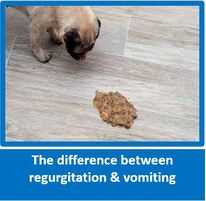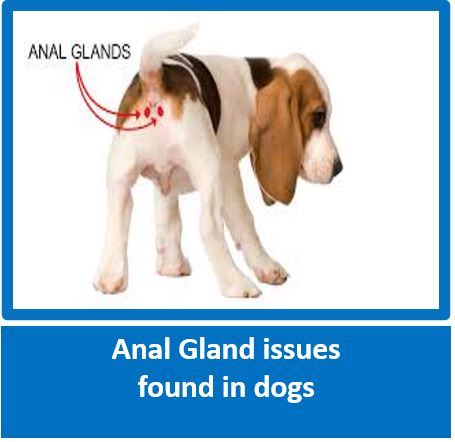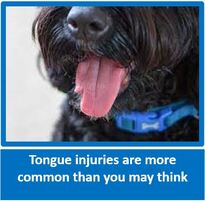
Vet expenses can be very high, especially if any type of operation or specialist care is involved. Ensure that your pet is covered in the event of any unexpected, and unforeseen accidents, any operations, and to look after your Golden Oldie, when those days arrive. We have 5 simple plans for comprehensive pet insurance coverage. Visit our website at www.genericpet.co.za
How much does dog Cataract Surgery cost?
www.caninejournal.com
(This website worth a visit, has a lot of info on dog health problems)
www.caninejournal.com
(This website worth a visit, has a lot of info on dog health problems)
Has your dog been diagnosed with cataracts? If so, are you worried about the cumbersome cost of canine cataract surgery? It can be expensive, for sure. And if left untreated, this progressive condition can lead to total blindness, so it’s a necessity for your pup’s quality of life.
But just how much does dog cataract surgery cost? And how can you reduce your financial burden for unexpected illnesses like this? Here, we’ll give you the info you need to know about dog cataract surgery, the associated costs and how you may proactively reduce your financial risk for pet vet procedures.
What Are The Causes Of Canine Cataracts?
This condition is usually inherited, and several breeds are more susceptible, including golden retrievers, Siberian huskies, American cocker spaniels, miniature poodles, miniature schnauzers and Boston terriers. But several other causes and risk factors can result in cataracts. These include:
What Are The Signs Of Cataracts In Dogs?
Like with human cataracts, dogs develop a cloudy white or gray film over the center of their eyes, just behind the retina. Obviously, this is a tell-tale sign, but there are other symptoms to consider, including:
But just how much does dog cataract surgery cost? And how can you reduce your financial burden for unexpected illnesses like this? Here, we’ll give you the info you need to know about dog cataract surgery, the associated costs and how you may proactively reduce your financial risk for pet vet procedures.
What Are The Causes Of Canine Cataracts?
This condition is usually inherited, and several breeds are more susceptible, including golden retrievers, Siberian huskies, American cocker spaniels, miniature poodles, miniature schnauzers and Boston terriers. But several other causes and risk factors can result in cataracts. These include:
- Old age
- Diabetes mellitus
- Electric shock
- Inflammation of the eye’s uvea (uveitis)
- Abnormally low levels of calcium in the blood (hypocalcemia)
What Are The Signs Of Cataracts In Dogs?
Like with human cataracts, dogs develop a cloudy white or gray film over the center of their eyes, just behind the retina. Obviously, this is a tell-tale sign, but there are other symptoms to consider, including:
- Chronic eye redness
- Eye socket inflammation
- Bulging of one eye compared to the other
- Noticeable vision problems, especially in dimly lit conditions
- Squinting
- Pawing at eyes
How Do You Treat Dog Cataracts?
If you notice any of the symptoms above, it’s important to visit your veterinarian as soon as possible (especially if your dog’s breed is predisposed or elderly). Your vet will ask for a health history, including the onset of related symptoms, and do a thorough physical exam, focusing on your dog’s eyes. Your vet may also do blood tests and a urinalysis to determine if any diseases could be causing your dog’s condition. If your dog’s diagnosis is diabetes-related cataracts, your vet will first start treatment of this disease to get it under control.
Most likely, your regular vet will refer you to a veterinary ophthalmologist, who specializes in eye disorders. There are several advanced diagnostic tests the ophthalmologist uses to determine the severity of your pup’s condition and if he needs surgery. These can include:
What’s Involved In Dog Cataract Surgery?
Although stressful for you and your pup, dog cataract surgery is usually uncomplicated and performed on an outpatient basis (meaning, he can be home with you the same day). Your dog will be put under general anesthesia, and the surgeon will make a small incision into the eye. Then, the surgeon uses a technique called phacoemulsification, in which he uses a small ultrasonic handpiece that breaks up the cataract and aspirates it out of the eye. Then, the surgeon inserts an artificial lens into your dog’s eye to restore his normal vision. The dog cataract surgery success rate is approximately 90%. Most dogs regain near normal vision, although many remain slightly far sighted. Most pets’ vision continues to improve over the week following surgery.
How Much Is Cataract Surgery For Dogs?
The cost of cataract surgery for dogs averages $2,700-4,000. This estimate includes the preliminary examination, ERG and ultrasound, surgery, aesthesia, operating room use, hospitalization, initial medications and postoperative check-ups (usually up to 90 days). Surgical costs, however, can vary pretty widely based on your location and service provider.
FOTD -"In SA, your vet may well refer you to a hospital such as the Johannesburg/Cape Eye Hospitals for specialist care. The approximate cost, depending on what was being done, and including the initial consult and the Ultrasound would be between R20500 to R33000, however, we would suggest checking with both your vet and the Eye Hospital for an accurate quote as there are different procedures for different conditions and these would impact on the cost" Email is [email protected]. @animaleyehospital.co.za
How Can You Reduce The Cost?
Getting pet health insurance when your dog is young is the best way to plan for health issues throughout your pet’s life. If you sign up while he is young, there are far fewer pre-existing conditions which brings the price way down for you. And, having pet insurance before diagnosis can help minimize unexpected expenses for dog cataract surgery and a host of other pet health expenses. It’s not as expensive as you might think. But, you must have an active pet insurance policy in force prior to diagnosis for that condition to be covered.
There are some very reputable pet insurance companies that can help offset most of your pet’s health unexpected health expenses.
Is Dog Cataract Surgery Worth The Cost?
For sure, if you don’t want your dog to suffer from a debilitating loss of vision. You love your pup and don’t want to see him suffer from loss of eyesight, just as you wouldn’t wish that for any family member. Sure, the surgical costs are high, but with pet insurance, you will be covered when the vet asks you to fork out a ton of money to give your dog a higher quality of life in the long run.
If you notice any of the symptoms above, it’s important to visit your veterinarian as soon as possible (especially if your dog’s breed is predisposed or elderly). Your vet will ask for a health history, including the onset of related symptoms, and do a thorough physical exam, focusing on your dog’s eyes. Your vet may also do blood tests and a urinalysis to determine if any diseases could be causing your dog’s condition. If your dog’s diagnosis is diabetes-related cataracts, your vet will first start treatment of this disease to get it under control.
Most likely, your regular vet will refer you to a veterinary ophthalmologist, who specializes in eye disorders. There are several advanced diagnostic tests the ophthalmologist uses to determine the severity of your pup’s condition and if he needs surgery. These can include:
- An eye exam using a slit lamp biomicroscope and indirect ophthalmoscope
- Ultrasound or electroretinography (ERG) to examine your dog’s retinas
- CAT scan to visualize all areas in and around his eyes
What’s Involved In Dog Cataract Surgery?
Although stressful for you and your pup, dog cataract surgery is usually uncomplicated and performed on an outpatient basis (meaning, he can be home with you the same day). Your dog will be put under general anesthesia, and the surgeon will make a small incision into the eye. Then, the surgeon uses a technique called phacoemulsification, in which he uses a small ultrasonic handpiece that breaks up the cataract and aspirates it out of the eye. Then, the surgeon inserts an artificial lens into your dog’s eye to restore his normal vision. The dog cataract surgery success rate is approximately 90%. Most dogs regain near normal vision, although many remain slightly far sighted. Most pets’ vision continues to improve over the week following surgery.
How Much Is Cataract Surgery For Dogs?
The cost of cataract surgery for dogs averages $2,700-4,000. This estimate includes the preliminary examination, ERG and ultrasound, surgery, aesthesia, operating room use, hospitalization, initial medications and postoperative check-ups (usually up to 90 days). Surgical costs, however, can vary pretty widely based on your location and service provider.
FOTD -"In SA, your vet may well refer you to a hospital such as the Johannesburg/Cape Eye Hospitals for specialist care. The approximate cost, depending on what was being done, and including the initial consult and the Ultrasound would be between R20500 to R33000, however, we would suggest checking with both your vet and the Eye Hospital for an accurate quote as there are different procedures for different conditions and these would impact on the cost" Email is [email protected]. @animaleyehospital.co.za
How Can You Reduce The Cost?
Getting pet health insurance when your dog is young is the best way to plan for health issues throughout your pet’s life. If you sign up while he is young, there are far fewer pre-existing conditions which brings the price way down for you. And, having pet insurance before diagnosis can help minimize unexpected expenses for dog cataract surgery and a host of other pet health expenses. It’s not as expensive as you might think. But, you must have an active pet insurance policy in force prior to diagnosis for that condition to be covered.
There are some very reputable pet insurance companies that can help offset most of your pet’s health unexpected health expenses.
Is Dog Cataract Surgery Worth The Cost?
For sure, if you don’t want your dog to suffer from a debilitating loss of vision. You love your pup and don’t want to see him suffer from loss of eyesight, just as you wouldn’t wish that for any family member. Sure, the surgical costs are high, but with pet insurance, you will be covered when the vet asks you to fork out a ton of money to give your dog a higher quality of life in the long run.





